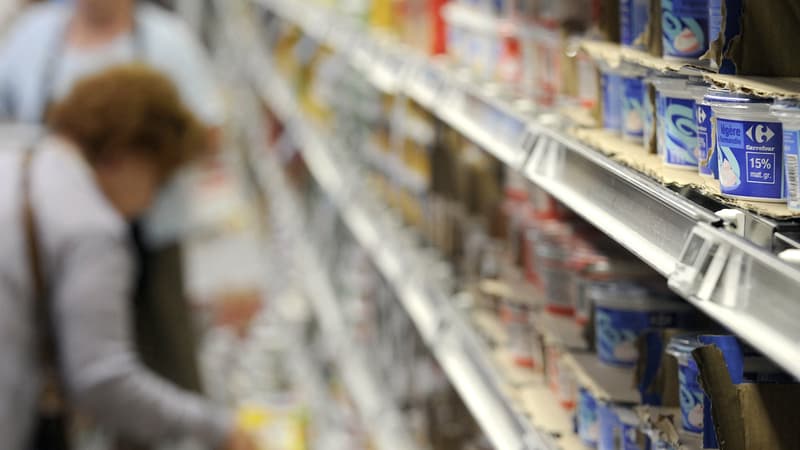Only one in two industrialists have signed all their contracts with their distributor clients, an unusually low rate a week after the end of particularly tense trade negotiations, the main organization of the agri-food industry said on Wednesday.
“Very low”, the signature rate rose to 54% on Wednesday, according to the National Association of Food Industries (Ania). “In general, 80% of the manufacturers have signed at this time of the year, and we are still a long way there,” stressed a spokesperson for Ania. “We worry a little every year, but it’s strange that so many companies haven’t registered so late,” he added.
As every year, supermarkets and their agribusiness suppliers must agree on the prices and conditions of sale of pasta, steaks or other yogurts, which will then be marketed on the shelves. Traditionally tense, these negotiations are even more so this year with sharp inflation of many production costs, from packaging to agricultural raw materials, including energy.
“Some distributors will wait until the last minute”
Manufacturers have on average asked supermarkets to buy their produce by 2023 “10 to 15%” more expensive than the previous year. Supermarkets are reluctant to raise their purchase price so much, Carrefour CEO Alexandre Bompard calling them, for example, “delusional”. For Ania, “some distributors will wait until the last minute, play the clock and sign between February 28 and March 1”, the deadline for these negotiations, also evoking “many threats of product exclusion” by supermarkets if they do not get the desired prizes.
Once the contracts are signed, the new prices will gradually be transferred to the supermarket shelves. Some players fear a “red march” in terms of price increases, which is refuted by Economy Minister Bruno Le Maire. On the subject of trade negotiations, “if there is a concern this year, it is about a certain number of agri-food industries,” the Minister of Agriculture, Marc Fesneau, estimated on Wednesday.
He specified that the Government is working on a plan to support the agri-food industry, since some companies have greatly drained their cash flow in 2022 and, according to him, they will not be able to do the same in 2023. Marc Fesneau “thinks that the president will say a word about it at the time of the Salon de l’Agriculture”, Emmanuel Macron is expected on Saturday for the opening of this event, Porte de Versailles in Paris.
Source: BFM TV


